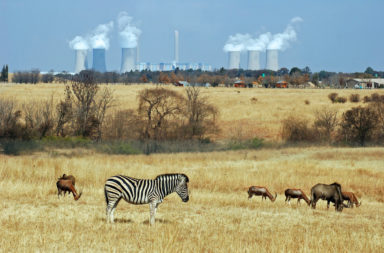By David Smith, OMFIF
The Sino-Latin American economic relationship is one of the phenomena of the millennium. Total trade between China and Latin America has multiplied 24-fold from barely $12bn in 2000 to a peak of $289bn in 2013. Investment ties have grown too. Beijing has become Brazil’s biggest trading partner (overtaking the US in 2009). China became Chile’s second largest export market and Peru’s number two trading relationship. No coincidence that, for a number of years, those three countries experienced substantial growth.
Others, like Mexico and the Central American group, did not export significantly to China, and experienced lower growth: the China syndrome, as regional economists called it.
Now economists, central bankers and investment gurus across Latin America diagnose serious consequences in the aftermath of the China’s evident economic slowdown and the renminbi’s downward adjustment.
‘China represented the biggest single factor in the commodities boom we enjoyed for a decade. Its appetite for food and iron ore were voracious,’ according to one experienced banker in Sao Paulo, Latin America’s economic hub. ‘That boom is long gone. China’s crisis makes me wonder whether we face not just the end of the boom, but a 20-year hangover.’
Along with Argentina, Brazil looks like the biggest loser. Together they account for 75% of China’s soybean purchases. Moreover, Argentina negotiated a currency swap in late 2014 that is credited with preventing a devaluation earlier this year – part of a burgeoning political relationship that accompanied the explosion in trade.
Brazil will feel greatest pain. Bilateral trade has soared to $83bn from $2bn in 2000. ‘China became our go-to market, for almost everything, iron ore, crude oil, soy, beef,’ says a foreign ministry desk-chief in Brasilia. ‘China has been a major player in our stock market, with investors seeing Brazil as a convenient way to invest in China’s dramatic growth.’ Brazil’s mining giant, Vale, the source of so much of that iron ore, has been hard hit. As China’s market has plummeted, so too has the Bovespa index in Sao Paulo, down almost 20% this year. Vale has fallen 22%, with its trading revenue down by 30%.
Until now China’s investments in Latin America have focused on commodities – demonstrated by major loans to Venezuela and Argentina as prepayment for oil and grains. Hence a memorandum of understanding this year on a joint venture between Chinese oil company Sinopec and Argentina’s YPF to develop Vaca Muerte, the world’s second-largest deposit of shale oil and gas, in Patagonia.
Earlier this year Li Keqiang, the Chinese premier visited the region, promising $250bn in investment over the next decade. In Brazil, that meant $7bn for troubled state oil giant Petrobras, the purchase of 14 jets from Brazil’s aeroplane maker Embraer, and construction of an electricity transmission system for the huge Belo Monte hydro-electric plant in the Amazon region. In Colombia, Peru and Chile his focus turned to infrastructure projects designed to facilitate supply of copper to China.
The Chinese have insisted they will enact a Latin American dream since independence in the early 19th century: a $50bn road linking Brazil’s Atlantic seaboard to a new port on the Pacific coast of Peru. The primary focus appears again the extractive industries, because of the blend of agricultural and mining resources along any mega-highway.
It is still too early to know whether Chinese uncertainties will put a halt to all this. Until this year, China was on track to rack up one milestone after another in Latin America. According to the UN’s Economic Commission for Latin America, in 2015 China will replace the European Union as Latin America’s second-largest trading partner after the US.
By 2020, China had been expected to account for more than 20% of the region’s exports. ‘That may still happen,’ says the banker in Sao Paulo. ‘But the days of China being the answer to our problems are well and truly over. In a sense China made Brazil an emerging market of such power and clout. Today our dependence on China may condemn us to years of recession.’
Next door, in Argentina, you hear the same fear. “Brazil is our biggest trading partner, and if Brazil catches a cold from China, we can have influenza,’” says one of Argentina’s leading industrialists. “China meant so much to us all in the good years. Now we don’t know what to expect.”
—
Originally published by OMFIF
David Smith, an OMFIF Advisory Board member, represented the UN Secretary-General in the Americas in 2004–14.




